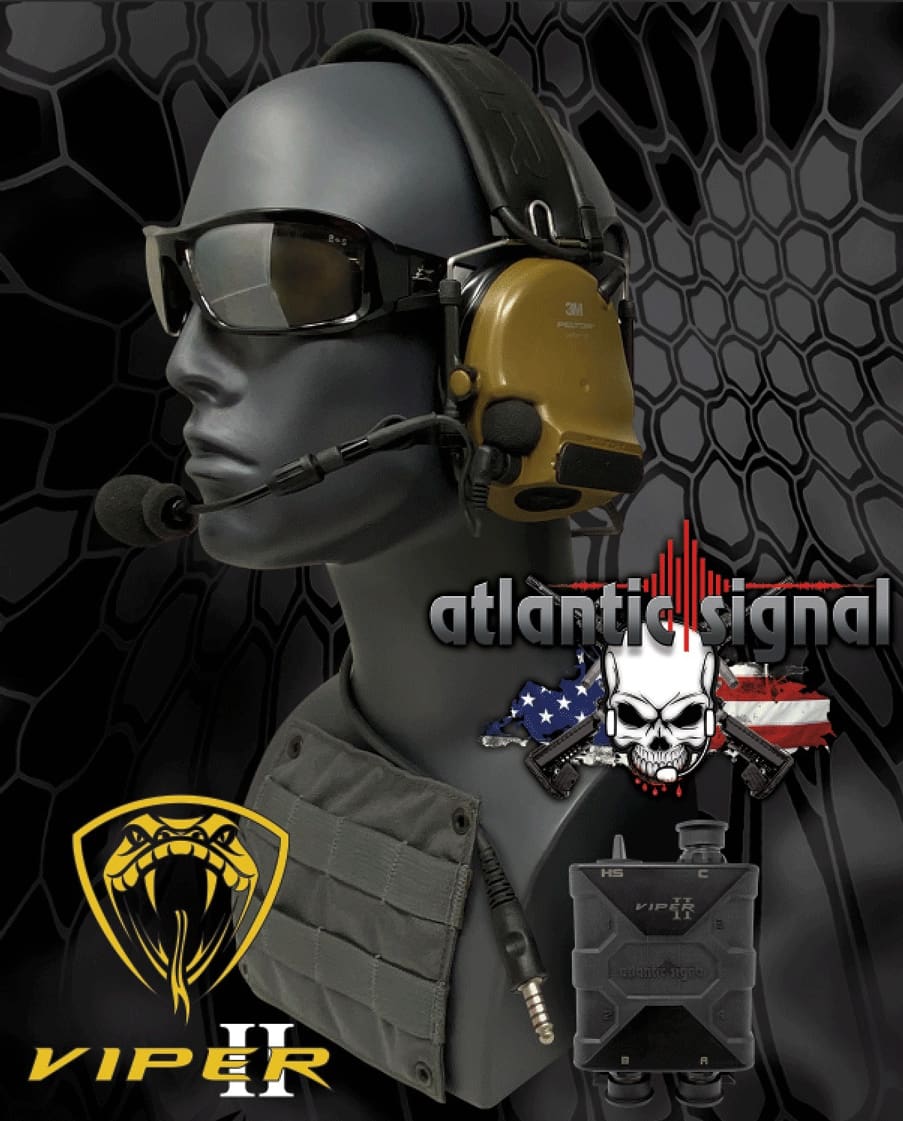Atlantic Signal was recently awarded an order for the 3rd SFAB following extensive testing of the company’s new Viper II Control Hub and Atlantic Signal exclusive ComTac VI headset.

Atlantic Signal began development of its new VIPER II Control Hub / Push-to-Talk in early 2019 with the input and assistance of several key customers. There had been a clear dissatisfaction with the design and capabilities, or lack thereof, of several of the PTT/control box options on the market that could interface with both standard and dual band radios along with various ancillary cable capabilities.
Further, Atlantic Signal introduced the Brigade to its exclusive ComTac VI headset featuring the all new NIB feature. The ComTac VI offers a new way to adjust the auditory settings of the headset for each mission. Traditionally, a headset has a set frequency response, and the operator can only increase or decrease the volume. The MAP function provides new advanced ambient listening modes that allow access to a variety of gain settings, but with frequency shaping, to enhance auditory performance in five conditions. The MAP Profiles have been designed with a variety of combat and combat support operations in mind.
NIB enables short-range, headset-to-headset communication in high noise environments, without the use of an external communications radio. The NIB function allows for 4 team members to speak simultaneously, and over 60 people within a 10 – meter radius to listen at any given time. Audio transmit is activated by either a voice activated switch (VOX) for hands free operations or by push-to-talk. The VOX switch is adaptive, meaning the threshold to activate will adjust automatically to the noise environment. To help reduce user burden, a tactile button has been added to the left ear cup that allows the user to easily turn on or off the function / and switch from VOX to PTT settings.
“We listened closely and carefully to several of our most demanding Federal LE and Military Special Operations customers in an attempt to better understand how their needs had changed and or broadened since several of our competitor’s dual band PTTs had come to market. Without divulging the detailed reasons as to why our VIPER I and VIPER II Control Hub/PTT is different from our competitors – some of those design changes are immediately recognizable but just as important are the tasks the VIPERs can perform and how easily each individual can program the VIPER for a personal end user experience. Nothing is complicated from the operator’s engagement perspective but a Control Hub / PTT that is VERY powerful both from the outlook of what it can do now and how it can be utilized in the future. After nearly 18 months in development and dozens of generations / modifications of both VIPER models in the field, we’ve received orders ranging from dozens to hundreds to over a thousand in a single purchase.” states Randall Hedrick, President and Managing General Member of Atlantic Signal.
The first SFAB was raised in 2018 at Fort Benning, GA, On May 18, 2018, the Army announced that the Security Force Assistance Command (SFAC) would be established at Fort Bragg. This division-level Command, led by a Brigadier General, will oversee the Army’s six Security Force Assistance Brigades, as well as the MATA for SFAB training and oversight.
3rd SFAB tested and evaluated the Atlantic Signal combination of the VIPER II PTT, ComTac VI headset and an assortment of custom cables both CONUS and OCONUS and decided upon this product mix to replace their current communication systems.
Atlantic Signal is based out of Topeka, KS where they develop, design, manufacture and sell tactical communications and accessories. The company started in 1989 with a focus on tactical law enforcement. Today, thirty-one years later, the company’s clients include NYPD ESU, CBP, NSW, LAPD, ATF, DEA, MARSOC, USCG, USSS and the FBI among thousands of military and law enforcement clients around the world.


SSD, for the very few DOD, Federal folks on here who don’t understand how this was done, can you explain how the unit was able to do this? For most of US DOD, this is magic that only cool guy units can accomplish.
1) Did the SFAC simply use a MIPR through DLA’s Tailored Logistics Support Program by way of TSSi, Darley, ADS, Federal Resources, Unifire, or Quantico Tactical?
2) Was this a BPA or IDIQ?
3) Does this package have an NSN that the unit procured these through ‘the system’?
4) Was this through the Ft. Bragg MICC? Or S2P2 our of Ft. Drum?